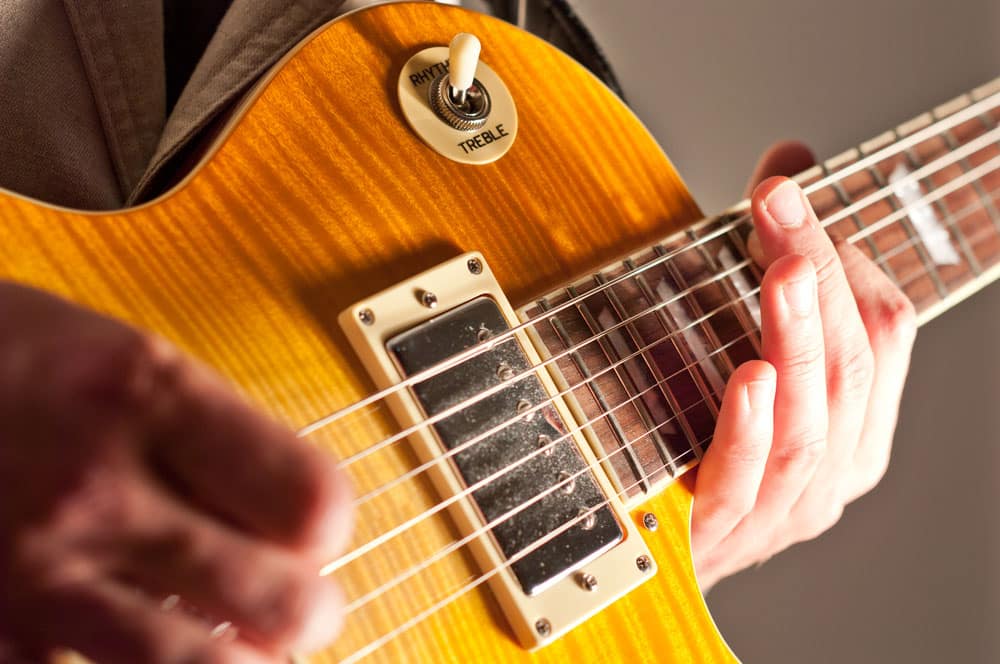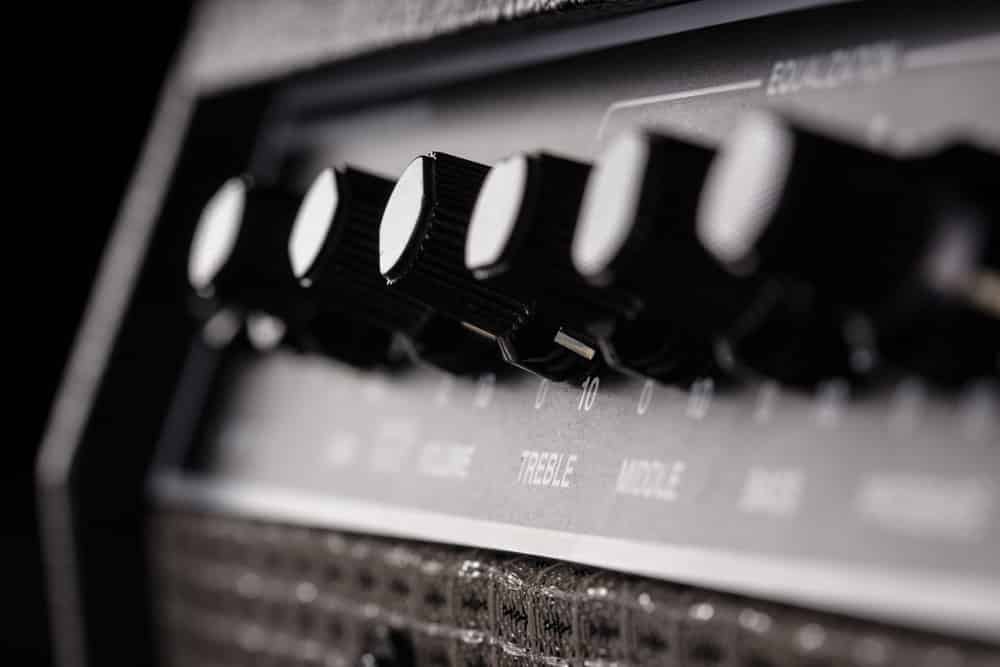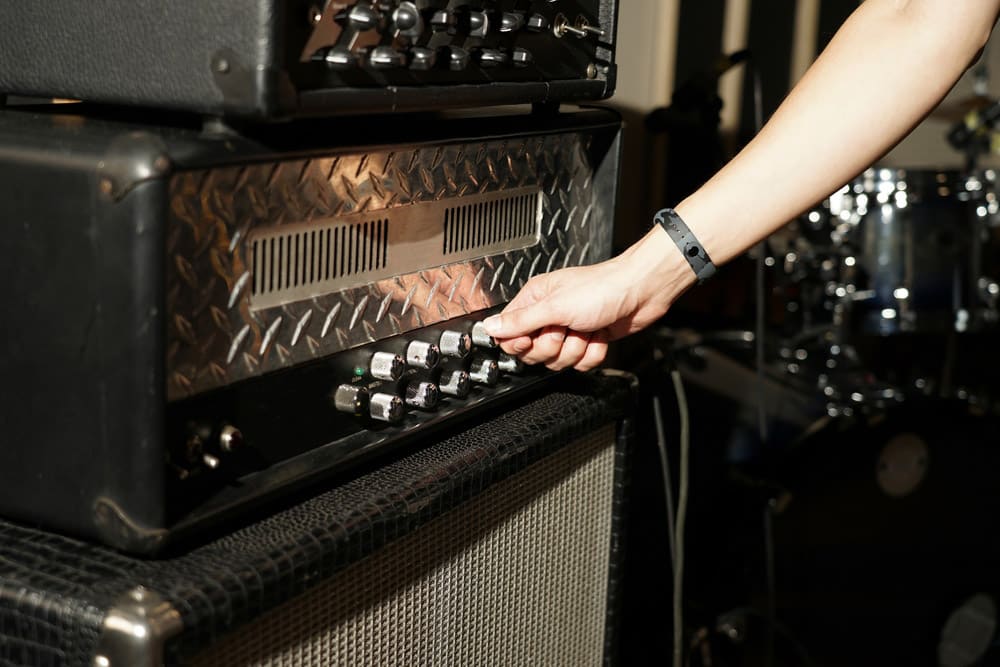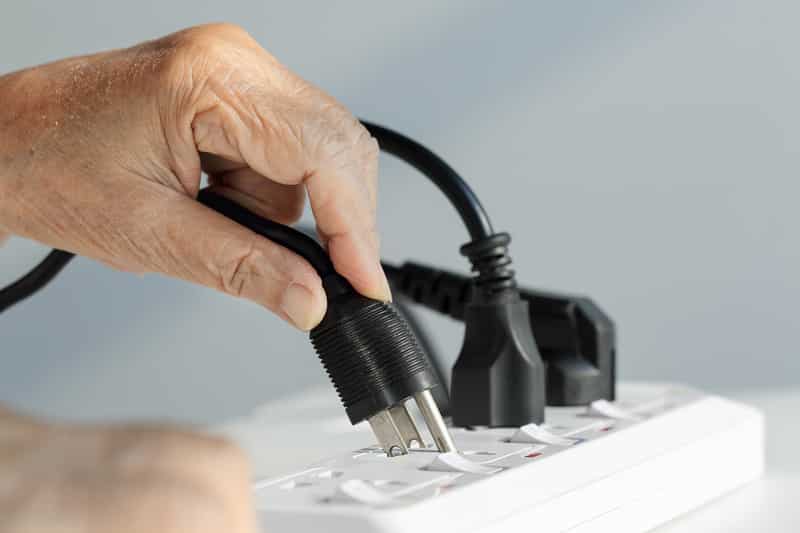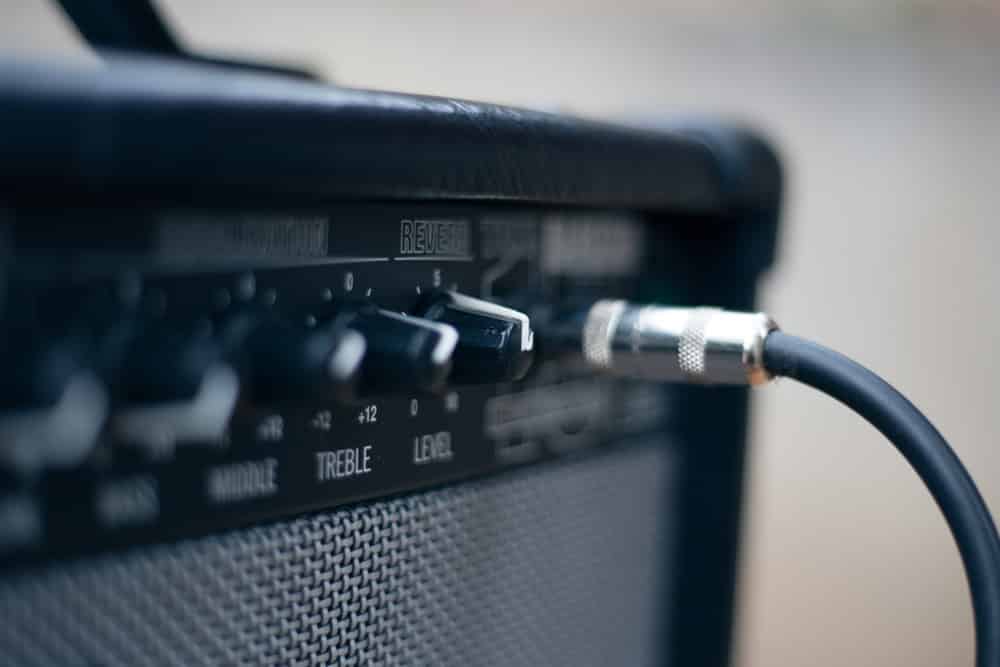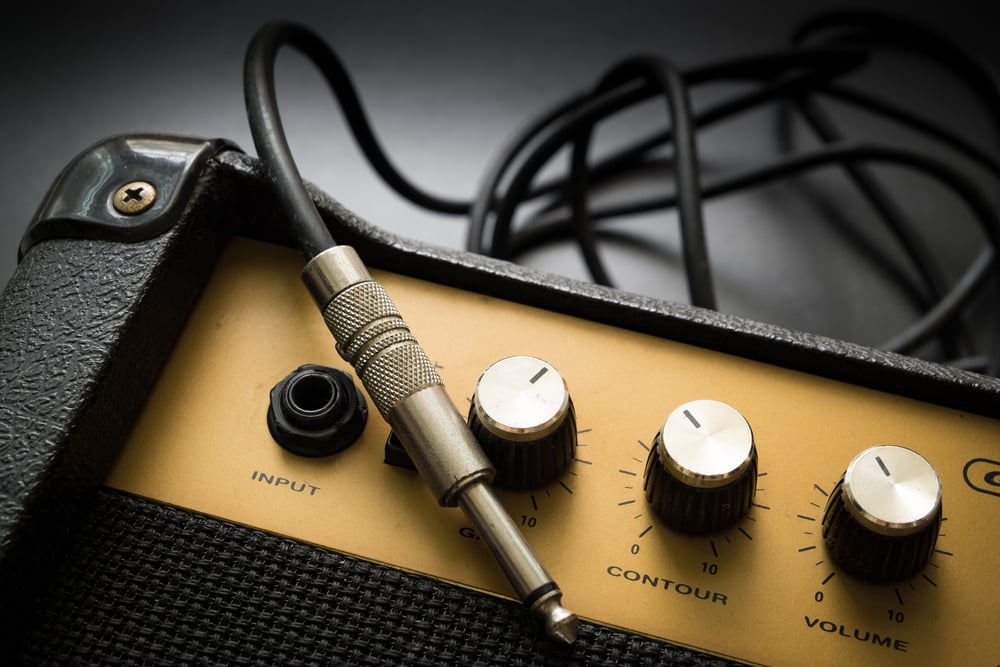
The bass guitar is frequently utilized to play low melody sounds termed “bass lines” in a wide range of musical genres such as rock, western, jazz fusion, and many more. These guitars usually have four, five, or six strings, and all of these are the thicker, bass strings. But having the appropriate bass guitar or playing it in the right way is not everything.
You’ll also need a decent bass amp if you want to get those low frequencies sounding clear when you play them. A preamp can also do wonders! Making sure that your amp is properly connected with your guitar is very important, and you will want to tweak the EQ settings to make sure that the amp is capable of reproducing accurate, quality tones.
But, what if you’re hearing a bit of a buzz every time you play certain notes? Random humming or buzzing sounds when you play certain notes can effectively make it impossible for you to record your audio properly. More importantly, in a live performance, this could take away from the whole experience, and really affect your band’s overall “sound.”
If the bass amp is working fine otherwise and the issue only occurs with a few notes, then it might be a wise idea for you to check out some of the fixes given below.
How to Fix a Bass Amp That’s Buzzing on Certain Notes
- Check Your Guitar’s Intonation
If the instruments are correctly intonated, all available strings and notes on the guitar resonate at their right tones. If your guitar does not sound perfect after you install new strings, then your guitar’s intonation is incorrect, which may result in a buzzing sound on certain frets.
You may have to open up the guitar’s neck and tinker with the truss rod to reduce the buzzing sound, especially if you’re hearing it on the first few frets. They can generate resonance on the guitar when you play those notes, resulting in the weird buzz on the amp.
The simplest way to prevent dealing with the same issue again is to double-check the strings, loosen them up, and fine-tune the guitar once again. If you’re a bass guitar player and know your way around the instrument, it’s best if you do this yourself. Simply loosen all the strings, set the neck correctly, and then wind the strings again.
This time, be careful when tuning in to identify buzzing noises if any. Once you do, make sure you move the strings’ positioning on the neck, or even the bridge, to correct the issue.
- Amp Settings
Have you set up the amp properly? It’s important to fix the gain, the treble, and the bass properly on your amp. There’s also the middle setting, and you have to tinker with them to get the right sound. Ideally, when starting off, it’s best to begin by setting them all in the middle. That’ll give you a nice, balanced tone.
Revert to defaults and check whether there’s any buzzing or not. Usually, if you set the bass to full high, it’s probably going to cause more buzzing, especially on the lower frets. Depending upon the type of amp, the settings will vary accordingly. For instance, smaller amps are easier to manage, since they don’t even have in-built filters that you can use.
Similarly, if you are using a preamp or a pedal along with your guitar, it might be a wise idea to remove that and connect directly to the amp. Connect the amp directly with your guitar instead of adding a preamp or a pedal. That’ll help you isolate the problem in a much better fashion.
- Speaker Compatibility
If you’re using an amp with an in-built speaker, the problem will most likely be fixed by fine-tuning your guitar’s intonation and properly adjusting the amp’s settings to be synchronized with your instrument. However, if you have attached an external speaker to your amp, instead of a bass amp, there’s likely to be buzzing.
That’s because most conventional speakers are just not designed to reproduce such low frequencies, and as a result, are susceptible to creating buzzing noises. Ideally, using speakers with your bass guitar isn’t a recommended option.
Speakers are calibrated in an entirely different manner, and they aren’t generally capable of isolating the frequencies from a bass guitar. The best thing to do is to purchase a decent bass amp to prevent this problem.
- Check the Cables
The cable that connects your guitar with your amp can also be a reason for that buzzing noise. The cable generally has a bunch of tiny wires that are wrapped together in insulation, and a blockage or an issue could cause the amp to buzz. Ideally, if your guitar is buzzing, one of the best things to do is to replace the cable outright.
If you have a spare lead, use that. The issue could either be in the cable or the connectors at the end. Either way, replacing the whole thing is the most efficient way to isolate and identify whether the problem is caused by a faulty cable. And, even when you buy a new cable for your guitar, make sure you buy one from a reputable brand.
Fender, for instance, makes high-quality cables. They cost a bit more than conventional, cheaper cables, but they’re also likely to last longer.
- Check the Power Cord
A bad power cable can also cause amps to buzz. Is there an issue with the wire that you’re using to connect your amp to the power supply? Cables are subjected to a lot of wear and tear, so it’s natural for them to fail after some time.
As mentioned, when it comes to power connections, one of two things might occur: either the issue is with the cable or with the connector. The problem is that most amps come with a power cord that’s soldered inside. Therefore, you can’t just remove the cord and attach another instead.
If the issue is with the power cord, or the amp, the best thing to do would be to visit your local guitar repair shop. They can carefully check the entire amp and look for any issues. Keep in mind that the speakers inside the amp are also susceptible to wear and tear. With time, they’ll wear out, and your only option will be to replace the amp altogether.
- Connectors Must Be Re-Soldered
The connector port in your guitar, and the one on your amp, are both likely to become loose over time. If that happens, the guitar may start buzzing. Ideally, you’ll want to make sure that you get this checked, and if they’ve become loose, get it fixed right away. Thankfully, this is an easy fix.
If you already have experience soldering wires, this won’t be an issue. However, figuring out if the connectors are loose in the first place is generally difficult. The best indicator that your connectors might be loose is if you have to wiggle the cable slightly once you hook it up to the amp.
If you find yourself constantly fiddling with the connectors to eventually get that nice, clean sound, the issue lies there.
- Clean The Pots In The Amp
The accumulation of dust and filth on your guitar pots (potentiometers) may cause buzzing noises as well. Clean them with an electrical circuit washer and rotate the knobs around to ensure complete cleaning. The pots on your bass guitar amp can cause audio signals to cut out, especially if they are not used for long periods.
Cleaning them is a breeze, and all you need is an electrical interface cleaner. For this, use WD40, which eliminates dust, oil, and undesirable residues from the surfaces of delicate devices. You’ll have to remove the knobs first before you get started.
Conclusion
Numerous factors might generate noise in your amplifier. However, if you troubleshoot bass guitar amp noise buzzing step-by-step through some of the most common sources indicated above, you will almost certainly uncover your problem and be able to eliminate the unwanted buzzing.

